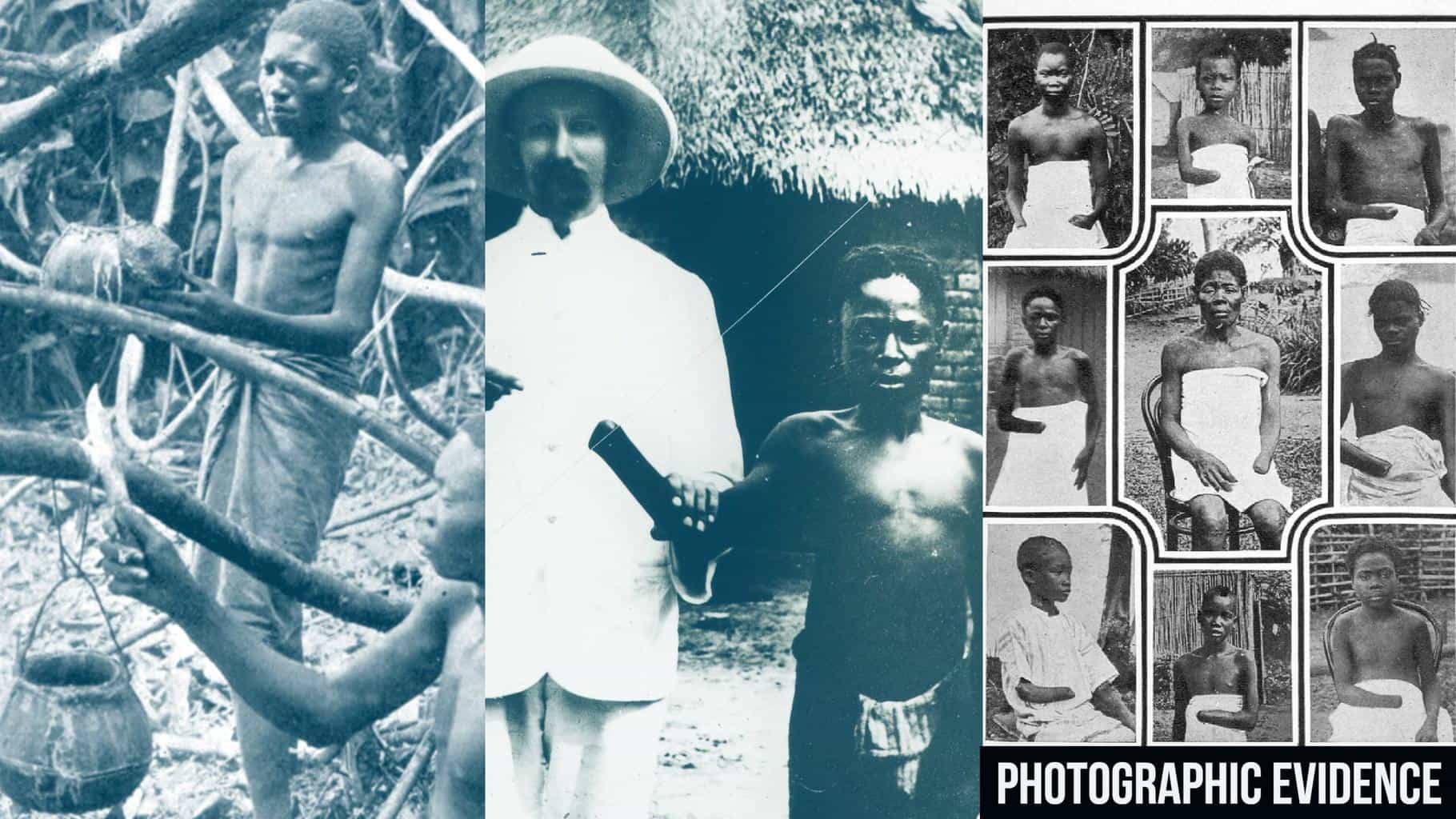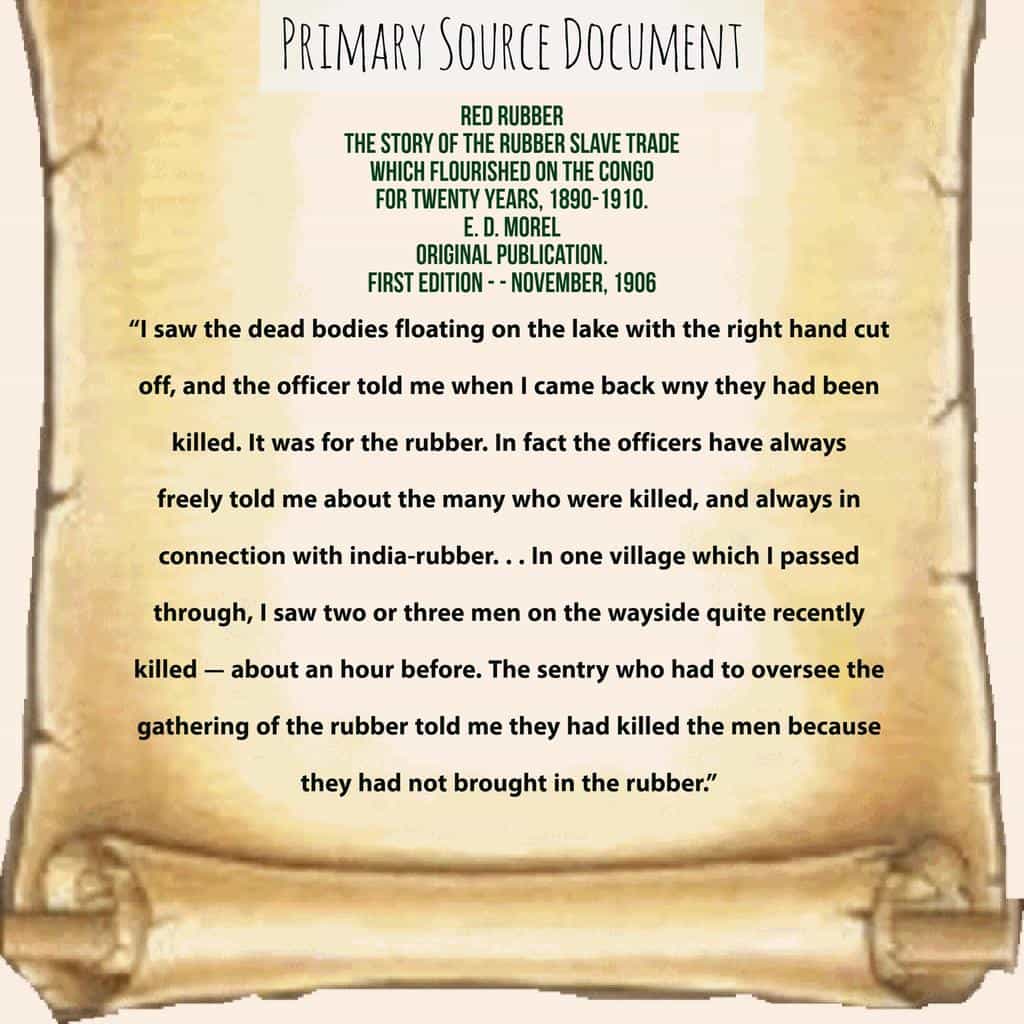Photo Credit (right to left)
King Leopold’s Ghost (link) by What Remains Now, Louis-Joseph Ghémar [Public domain], via Wikimedia Commons, By TUBS [CC BY-SA 3.0
A quick google search will reveal the definition of colonialism, according to the Mirriam-Webster dictionary, as “control by one power over a dependent area or people.” To be more descriptive, this “control” takes the form of a dominant government seizing political or military power over another country. The colonizing force then occupies the other country with settlers, and takes advantage of them economically. Sounds like a pretty negative process doesn’t it? Believe it or not, to this day not everyone agrees on the impact of colonialism.
Dr. Bruce Gilley, currently a professor at Portland State University, recently published a scholarly article in a peer reviewed academic journal. It was published on Sept 8th, 2017. It is titled “The Case for Colonialism.” In it Dr. Giley makes the case that colonialism might have a worse reputation than it deserves, and that the world could benefit from more colonialism.
Dr. Bruce Giley received his Ph.D. in Political Science from Princeton University, which is an elite Ivy League school. Even though Dr. Giley’s opinions are far from the norm, peer reviewed academic journals are known as having high standards. They are considered reliable sources of information. Peer reviewed means that not only is the article written by an expert, but it must also be reviewed by other experts in the same subject for approval before it is published.
Here are some quotes from the introduction of his article. You can read the full article for free online by clicking this link. Take the first sentence for example:
For the last 100 years, Western colonialism has had a bad name. Colonialism has virtually disappeared from international affairs, and there is no easier way to discredit a political idea or opponent than to raise the cry of ‘colonialism’ (Gilley 1).
Also in the introduction:
The notion that colonialism is always and everywhere a bad thing needs to be rethought in light of the grave human toll of a century of anti-colonial regimes and policies (Gilley 1).
…and this:
Thirdly, in some instances it may be possible to build new Western colonies from scratch (Gilley 2).
Citation:
Gilley, Bruce. “The Case for Colonialism.” Third World Quarterly, 8 Sept. 2017, pp. 1–2., www.tandfonline.com/doi/full/10.1080/01436597.2017.1369037.
Colonization had an enormous impact around the world. The effects are too broad to be described in one article. Even just to focus on colonization in Africa is too broad. As an example of colonization, I want to focus on one specific colony at a specific time period in history: the Belgian colony in the Congo from 1855 to 1908.
Essential Questions: They say that history is written by the victors. When do we consider an atrocity to be genocide? Can colonization be justified? Can slavery be justified?
Exhibit A:
Photo Credit:
By Unknown – http://digitallibrary.usc.edu/cdm/ref/collection/p15799coll123/id/78038, Public Domain
By Unknown – The story of the Congo Free State; social, political, and economic aspects of the Belgian system of government in Central Africa (1905), Public Domain,
By Alice Harris – King Leopold’s Soliloquy: A Defense of His Congo Rule, By Mark Twain, Boston: The P. R. Warren Co., 1905, Second Edition., Public Domain,
During the time that Belgium had control over the Congo, there was a huge demand for rubber due to the increasing number of automobiles and the need for rubber tires.
Although King Leopold II of Belgium never set foot in the Congo during his lifetime, he demanded more and more rubber from his colony. The entire colony was run by a small group of white European rulers far from Africa.
The colonists did not provide any services for the people there, but they claimed the land as their own and divided it among themselves. The land was valuable because it was an ideal climate for growing rubber.
The colonists were only interested in making a profit. They forced the local people to produce rubber for them. Often the colonists demanded too much rubber for the Congolese to produce, and when they could not produce enough rubber the Belgian colonists would brutally attack them to force them to work harder.
The Belgian colonists and their enforcers were known to wipe out entire villages including men, women, and children. The brutality and neglect of Belgian rule was so widespread that it lead to the breakdown of the entire Congolese society.
One of the most well documented abuses of the Belgians during that time was that they would often cut off people’s hands to punish them. They controlled a population much greater in size than their own forces by spreading fear and using tactics of intimidation. As a result of all of this, many Congolese people died from starvation and the spread of disease. Modern scholars estimate that somewhere in the range of 1 to 15 million innocent people died under Belgian rule. The exact number is not known.
Exhibit B:
Exhibit C:
Important vocabulary and terms:
- Colonialism
- Peer reviewed journal
- Ivy league
- Genocide
- Atrocity
- Gelgium
- The Congo
- Congolese
- Belgium




I like the flow of this mini lesson. The text provides a context, and the artifacts fit nicely into that context. I also really like the essential questions to help guide the viewer’s thinking.